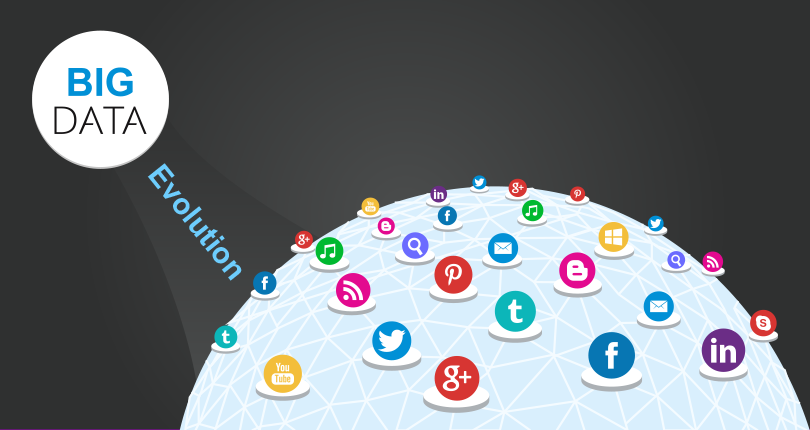
Big Data
Big data is still an enigma to many people. It’s a relatively new term that was only coined during the latter part of the last decade. While it may still be ambiguous to many people since its inception it’s become increasingly clear what big data is and why it’s important to so many different companies.
The term big data doesn’t just refer to the enormous amounts of data available today, it also refers to the whole process of gathering, storing, and analyzing that data. Importantly, this process is being used to make the world a better place.
Since big data as we know it today is so new, there’s not a whole lot of past to examine, but what there shows just how much big data has evolved and improved in such a short period of time and hints at the changes that will come in the future. Importantly, big data is now starting to move past being simply a buzzword that’s understood by only a select few. It’s become more mainstream, and those who are actually implementing big data are finding great success.
In the past, big data was a big business tool. Not only were the big businesses the ones with the huge amounts of information, but they were also the ones who had sufficient capital to get big data up and running in the first place. Big data is still an enigma to many people. It’s a relatively new term that was only coined during the latter part of the last decade. While it may still be ambiguous to many people since its inception it’s become increasingly clear what big data is and why it’s important to so many different companies. It used to be that in order to use big data technology, a complex and costly on-premise infrastructure had to be installed. Along with that expensive hardware came the responsibility to assemble an expert team to run and maintain the system and make sense of the information. It wasn’t easy, and it wasn’t a small business friend.
Big Data Cloud
Big data in the cloud changed all of that. It turned out to be the perfect solution for many companies. It doesn’t require any on-premise infrastructure, which greatly reduces startup costs. It also doesn’t require the same amount of data gurus on the team because of how much can be done by the cloud company itself. Big data in the cloud has been one of the key components in big data’s quick ascent in the business and technology world. Big data in the cloud is also vital because of the growing amount of information each day. It’s extremely hard to scale your infrastructure when you’ve got an on-premise setup to meet your information needs. You have to install more hardware for more data or waste space and money with unused hardware when the data is less than expected. That problem doesn’t exist with big data in the cloud. Companies can scale up and down as their needs require, without significant financial cost.
Big Data Use Cases
Big data has also evolved in its use since its inception. Today, we see it being used in the military to reduce injuries, in the NBA to monitor every movement on the floor during a game, in healthcare to prevent heart disease and cancer, and in music to help artists go big. We’re seeing that it has no limits. It’s fundamentally changing the way we do things. There’s so much advancement that’s coming to fruition because of it. With the increased availability and affordability, the changes are only going to increase.
Data Science and Big Data
The increase in big data also means that companies are beginning to realize how important it is to have excellent data analysts and data scientists. Companies are also beginning to implement executive positions like chief data officer and chief data analyst. The ripple effect is being felt in education, where universities and colleges are scrambling to provide learning for tomorrow’s data specialists. There’s an enormous demand for data-literate people that’s continually on the rise.
It hasn’t been around for long, but big data has been constantly evolving and that will only continue. With an increase in technology and data, consumers can expect to see enormous differences across a broad spectrum of industries. Big data is here to stay. As it continues to grow and improve, those who adopt big data to discover the next competitive advantage are going to find success ahead of their non-big data counterparts.


